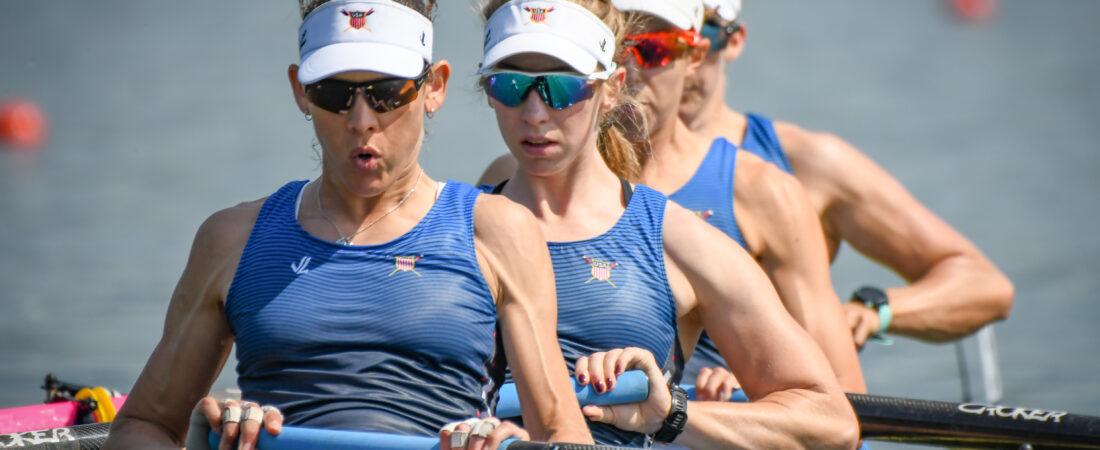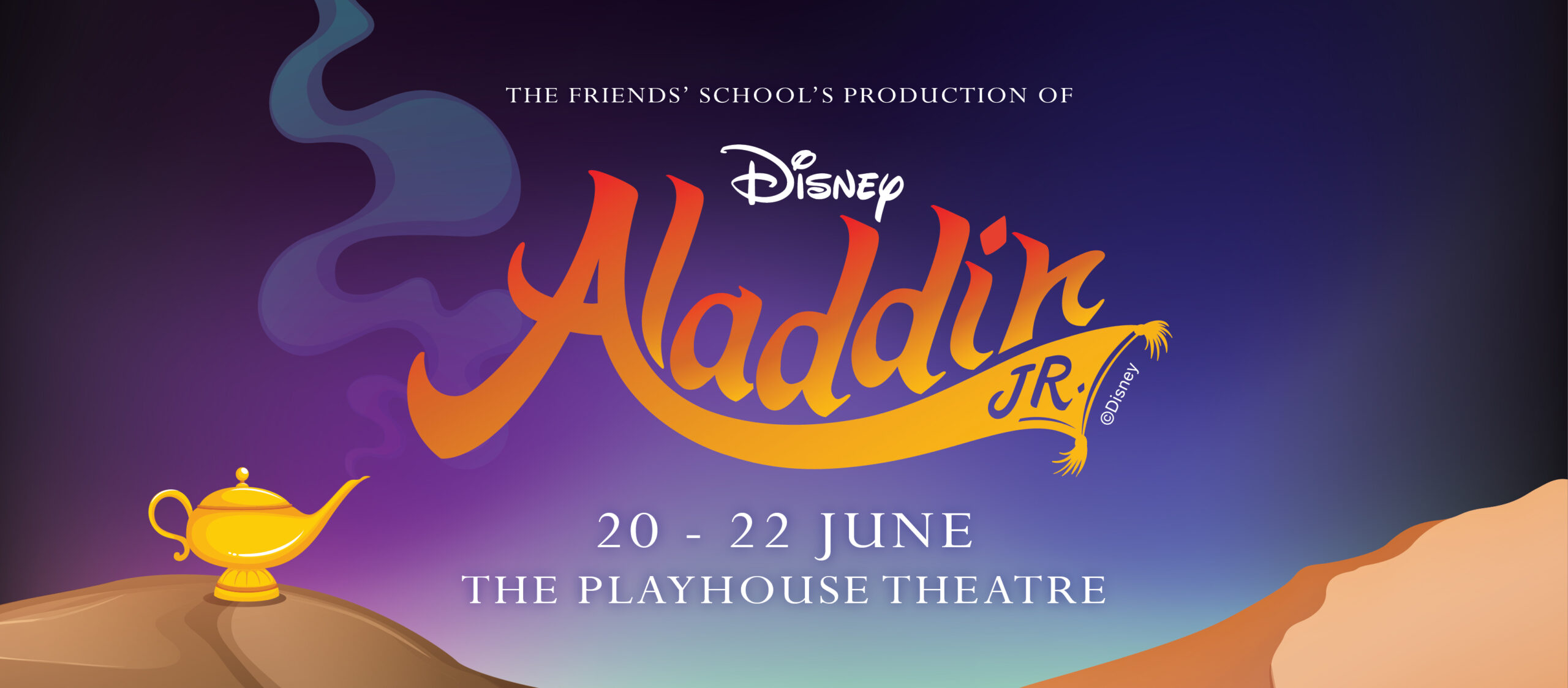Caryn Davies (Class of 1999)
Posted on May 27, 2024
The difference a year makes
Caryn Davies (1999), who was last year awarded the Nobel prize of rowing, the 2023 Thomas Keller Medal, started rowing at 14 while she attended Friends’. (Her former English teacher and head of rowing Mark Nicholson describes the winner of three Olympic medals, including golds for leading the US Women’s eight in 2008 and 2012, as “focussed, intelligent, collegial and with the mental toughness required for a brutal sport”.) Here, the Harvard-, Columbia Law- and Oxford-educated Caryn recounts her year at Friends’ and what came after.
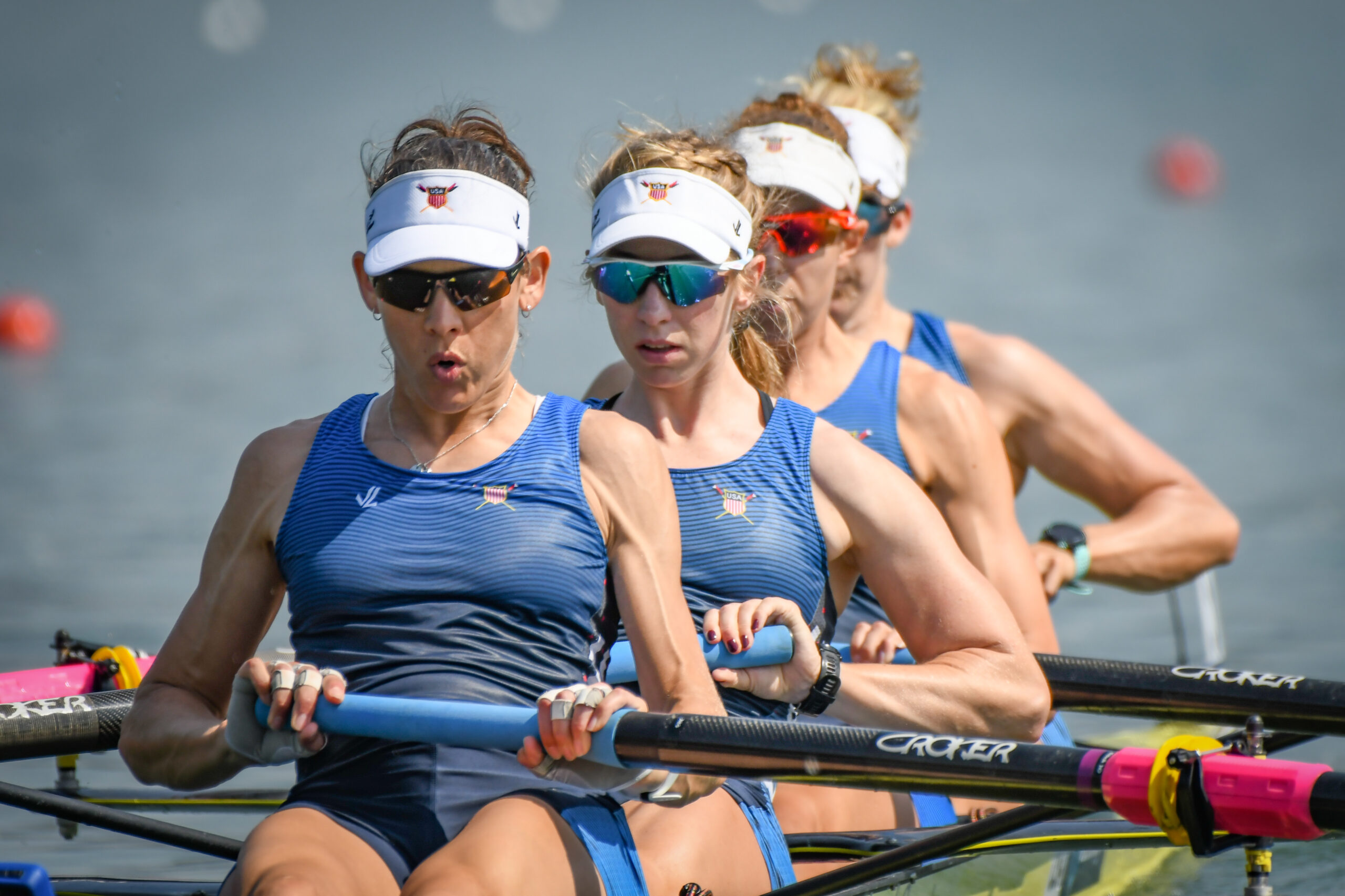
What brought you to The Friends’ School and to rowing?
My father (Cornell plant science professor Peter Davies) was on sabbatical at the University of Tasmania, so the whole family moved to Hobart for a year. I had done a little rowing back home in Ithaca, New York – a learn-to-row program over the northern summer – but that was just a couple of weeks. When my father called up the Sandy Bay Rowing Club, I think it was Glenn Hay, who coached both at Sandy Bay and at Friends’, who said he’d love to see my brother Kenneth but, “I don’t know if we have room for Caryn.” There were just too many women at the boathouse already! My dad made it clear we came as a package deal.
Shortly after, I started rowing at Friends’. If I’m honest with myself, I was looking for a place to belong. I was shy; it was a new school. But when I joined the rowing team, I came out of my shell. One teacher said I was a completely different young woman by the time I left.
It’s only in the last few years that I’ve realised why rowing is so important to me. When I started, I felt like I had finally found my people. Rowing gives me a community. I got my first taste of that at Friends’.
I’ve learned over the years that relationships are equally as important as skills. They’re probably more important! The wisest thing you can do in life is to surround yourself with good people. A boathouse is a great place to do that.
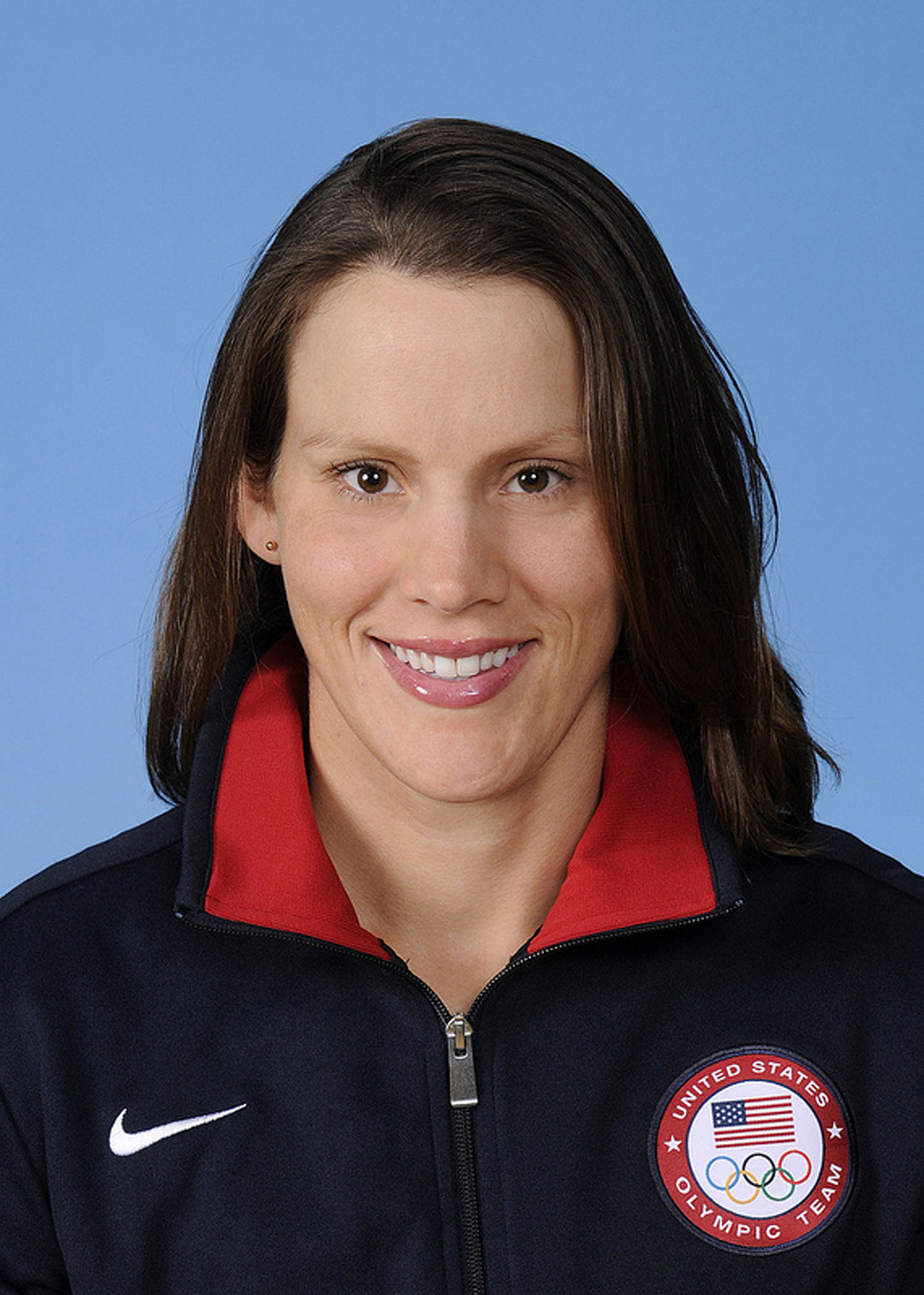
Were you thinking back then: I could make a life as an athlete?
I had done all kinds of sports, including downhill skiing, and I hoped to go to the Olympics one day, but it wasn’t until I started rowing that I could see an actual path forward. But let’s be clear: I was never under any illusions that I could make a career out of it. Rowers don’t get paid.
Being tall obviously helps being good at rowing – I’m 193cm – but it’s not an absolute. Rowing is an endurance sport. In the end, you have to be willing to suffer. There’s a part I love in the Olympic Charter that says: “Olympism seeks to create a way of life based on the joy found in effort.” You have to find the joy in that hard labour, in that suffering. And a lot of the joy is in seeing improvement. You’re never going to be perfect, but rowers are willing to spend hours and hours trying to get a little better.
Do you have to find that joy every single day, in every training session?
Absolutely not! Have you heard of Type 2 Fun? Type 1 Fun is fun that’s actually fun in the moment. Type 2 Fun is the kind that’s fun when it’s over. You climb a mountain and you’re pretty miserable climbing, but you get to the top and think, “I’m really glad I did that.” Or maybe it’s when you get to the bottom and put your feet up by the fire?
What’s been your path since Friends’?
I left Friends’ in 1997 and went back to Ithaca, New York for my last three years of high school. Then I rowed at Harvard. I took a year off my undergrad studies when I made my first Olympic team, in 2004. After I graduated, I spent three years training for the 2008 Olympic Games. After that, I did law school at Columbia and rowed in the 2012 Olympic Games.
I did a clerkship in Hawaii, which was super-fun, and took up outrigger canoeing. Then I went to Oxford for business school, and rowed there, too. It was the first time the women rowed the same Oxford-Cambridge Boat Race the men had been rowing for over 150 years.
Then I spent four years working as a lawyer for a big firm. That was just long hours, grinding, and rarely allowed time for me to get on the water. I was pretty unhappy, as most lawyers in big firms are!
In the summer of 2018, I started doing a little more rowing to clear my head. One day, I was out on the water in a single, and a Harvard coach was driving by in the launch. He points his megaphone at me and says: “Caryn! Are you training for Tokyo? You should. You love rowing and rowing loves you.” And that planted the seed. I asked the coach of the Olympic team what I had to do to get invited back to the Olympic camp. And he told me the metrics I’d have to hit. I got to work and hit them in December of that year.
Given you’d been away from the sport, and were the oldest at the tryouts, did you have to adapt your training?
I would have liked to! But everyone has to do the same training program at the Olympic training centre. It was really hard. I didn’t end up making the team for Tokyo.
One of the things that really sticks with me from rowing at Friends’ is that we were a good team; we won a bunch of races. But we did not win the Head of the River, which for us was the most important race of the season, and it was very disappointing. I think that set me up well for handling failures. And that’s one of the most important things you can learn – that life goes on.
Now I have my own law practice, Podium Law, where I live in Boston. I represent venture-backed start-ups and small businesses. I’m the outside counsel for companies who are too small to have an in-house counsel. I just had my first baby in September. I feel like The Grinch because my heart grew three sizes the day he was born! I named him Davys, which is a form of my name, since he doesn’t share my last name.
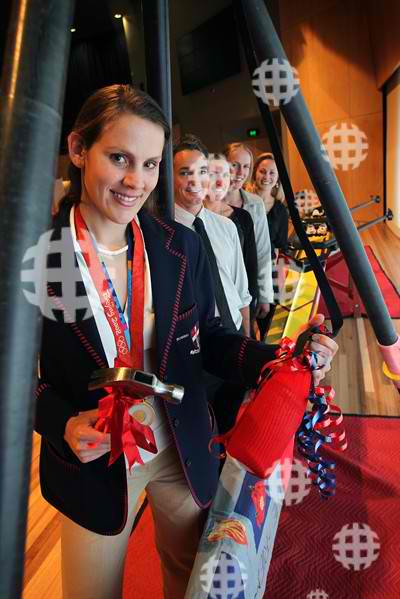
Did rowing at Friends’ contribute to how you approached rowing internationally, or leading a law practice?
My specialty was rowing on a team, specifically in the eight. On the Olympic team, I’m the tallest but not the strongest. In singles, I get beat! But in the stroke seat of the eight – the pace setter and leader – I refuse to lose. I sat up there for years before I realised: here’s what I’m really good at. In stroke seat, my job is to help everyone behind me row better. If I sensed that the boat was out of time, or people weren’t able to follow what I was doing, then I changed what I was doing until the boat was back in sync.
At Friends’, it was a close knit-team, and I felt that everyone wanted everyone else to succeed. There were times on the Olympic team I felt that and other times I didn’t, but I remember there were no stars at the Friends’ boathouse. We just all wanted to get better together.
It was like that the first Olympic gold medal I won – and the first, in fact, that US women won in more than 20 years – in 2008. When that group of women came together in 2006, we were all just… pretty good. The coach got us together in a room and looked around and he was like, “Well, I guess y’all are all we got. Let’s make it work.” And that summer, at the World Championships, we set a world record.
It shows that the best teams don’t necessarily have amazing stars on them. They just work really well together.
